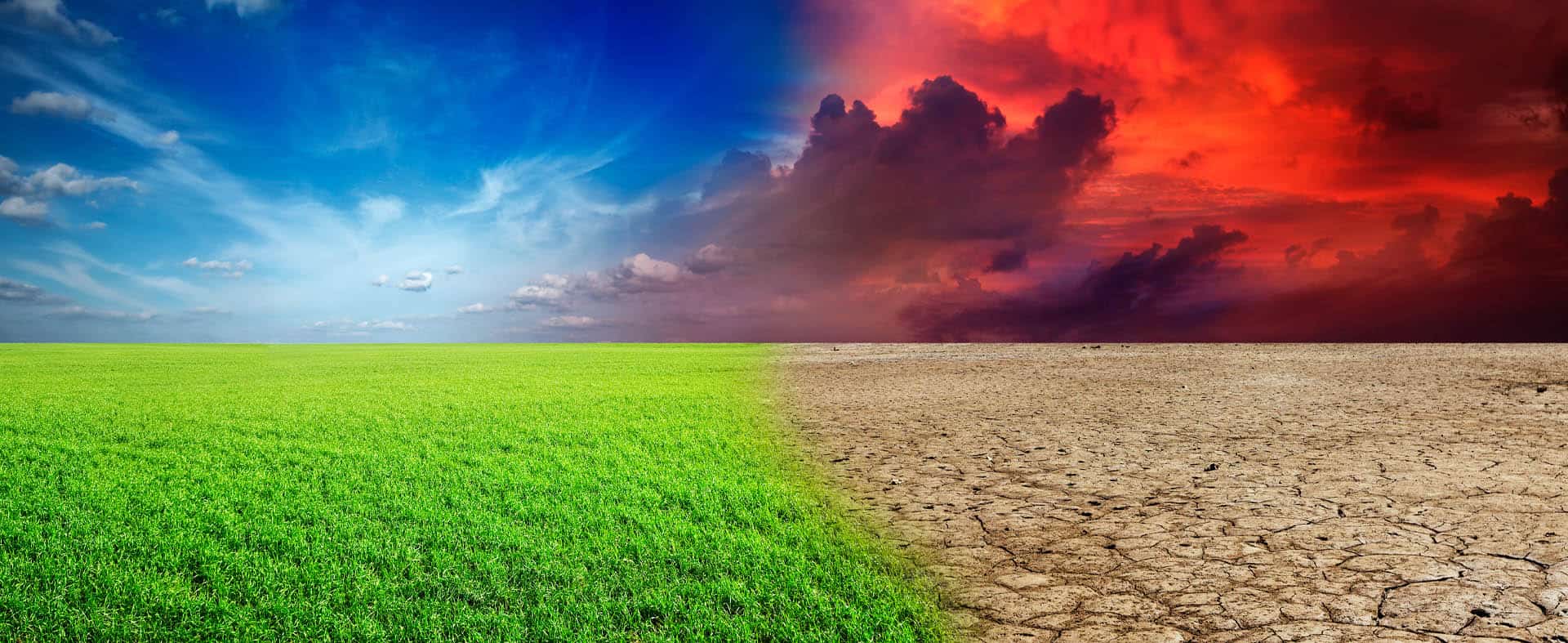
What Happens Within Us is Connected to What Happens in Nature
Brendan Kelly, M Ac, L Ac, Herbalist, Jade Mountain Wellness
From several thousand years of continuous application, Chinese medicine has developed a genuinely holistic view of the world. Just as our body and mind are interconnected, what happens within us is connected to what happens in nature. A great deal has been written about climate change and its effect on the health of people here in the U.S. and globally. Looking through the lens of Chinese medicine, it’s also possible to understand that what is happening to the climate is a direct reflection of what is happening within us.
One example of this interconnection is my work with a woman who I will call Mary. She was in her early fifties when she comes into our Chinese medicine clinic for her first appointment. She was looking for help with night sweats, and described exercising regularly, volunteering with several non-profits, and maintaining a busy family and social life. After about 45 minutes of talking, I listen to her Chinese medicine pulses and looked at her tongue. The diagnostics told a story I see often in my practice—Mary has an excess of heat and a lack of coolant.
Just as Mary’s internal temperature was rising, their is a vast amount of data to indicate that the planet is warming as well. In 2007, the Intergovernmental Panel on Climate Change (IPCC) issued its exhaustive fourth assessment report, summarizing huge amounts of western research on the condition of the planet’s climate. Along with Al Gore, it was awarded a Nobel Peace Prize for assembling and analyzing the work of more than 2500 scientific expert reviewers, more than 800 contributing authors, and more than 450 lead authors from over 130 countries. To summarize its finding, there is a nearly universal scientific consensus (greater than 99%) that the planet is warming significantly due to the actions of humans. If left unchecked, the rapidly increasing temperature will magnify the effects of violent storms, dramatic melting of glaciers, increasing floods and droughts, and general disruption of climate stability.[i] And rather than being separate conditions, Mary’s situation and climate change is the same story happening on different scales.
Chinese medicine has a long history of recognizing the inherent connections between the small picture and the big picture, between the microcosm and the macrocosm. Having been published several thousand years ago, the Chinese Medical text the Nei Jing states that the “human being is a small universe as the human body has everything that the universe has”[ii]. Also, Chinese medicine’s basic methods of diagnosis– pulse and tongue— are based on an understanding that we can evaluate one part of a person and understand their larger condition in body, mind and spirit.
Another fundamental part of Chinese medicine is its understanding of Yin and Yang, which are some of the oldest and most developed existent medical ideas. We see Yin in nature in cold temperature, the season of winter, and night, and within us as stillness, rest, and inactivity. Yang is about warmth, summer, and day and for us about movement, doing, and activity. As Yin and Yang are interconnected, if one goes up the other is likely to go down. What happens when the Yang of warmth increases and the coolant of Yin decreases is called Yin deficient heat
In my clinical practice, this is a common diagnosis. Some of us assume that night sweats, irritability, and a general lack of internal peace associated with Yin deficient heat is an inevitable part of aging, particularly for women. However, rather than being inevitable, it is a direct reflection of how we are living. While there are numerous factors that help create the condition, a basic, underlying cause is being too busy for too long.
In looking back at Mary’s condition, from one view she was healthy—she exercised regularly, ate well and was busy trying to help others in her community. But what was lacking was an understanding of what health involves from the inside out. A basic and very important understanding is that more is not necessarily better than less. More exercise, more work, more play does not necessarily lead to a more balanced and healthy life. In fact, the amount of overdoing in our country and culture has reached such an extraordinary level that it is manifesting in the global climate around us.
The Science of Climate Change
The basic science of global climate change is simple. As in a greenhouse, when we create “greenhouse gases” such as carbon dioxide from the burning of oil and coal they eventually accumulate in the atmosphere. When sunlight enters the atmosphere, it is oscillating at a relatively rapid rate. When it hits the earth and is reflected outward it’s vibration slows, preventing part of it from escaping into space. This increase in captured reflected sunlight increases temperature in the same process that happens in a greenhouse.
In addition to this increase in heat, there has been a corresponding decrease in the planet’s ability to capture greenhouse gases. Trees and oceans are able to absorb vast amounts of carbon and other greenhouse gases. However, large-scale global deforestation has dramatically reduced the amount of trees , decreasing the amount of gases that are being absorbed. It also appears that the amount of carbon the oceans can absorb is also decreasing significantly as they may have reached a saturation point. [iii]
Seen together, this dramatic increase in heat-trapping gases and equally dramatic decrease in the planet’s ability to cool itself is strikingly similar to Chinese medicine’s understanding of yin deficient heat. And what is creating this condition? We are. We collectively in the U.S. continue to release greenhouse gases at an ever increasing rate—thereby increasing global temperatures– as we continue to cut down trees —decreasing the planet’s coolant. In America for example, we are about 3% of the global population and contribute over 20% of greenhouse gases as we have cut down over 95% of the original forests in the U.S.
And why are we doing this? In terms of Chinese medicine, we collectively suffer from yin deficient heat. We as a country are pathologically overactive from an inability to slow down. We are consuming too much, driving and flying too much, and being stimulated too much. A basic understanding of Yin and Yang shows us that whenever there is an excess of something there will be a deficiency of something else. This excess of Yang in our over activity has helped to create our collective lack of Yin in our inability to slow down and do less.
An important part of this understanding is that we cannot ultimately treat this excess of Yang through doing more. Yes, we need to rapidly and dramatically increase the use of wind and solar power, use low and no emission vehicles, and eat and live more locally. But the lasting antidote to excess Yang is more Yin. We as patients, practitioners and students of Chinese medicine have a real role to play in helping address global warming. The understanding of Yin and Yang can offer much needed insight into health on a personal level that we can expand to the level of our country.
There is no better place for us to start to address global warming than living a balanced life in this era of pathological overdoing.
Brendan Kelly practices acupuncture, and eastern and western herbal medicine at Jade Mountain Wellness in Burlington. He is on the faculty at the Academy for Five Element Acupuncture and an adjunct professor at Johnson State College. He is in the process of publishing his first book “The Yin and Yang of Climate Change” and lectures at colleges, schools and conferences nationally.
For a more indepth article about a Chinese medical perspective on climate change, written for Chinese medical practitioners and students and published in the “Journal of Chinese Medicine”, go to https://www.jademtwellness.com/wp-content/uploads/2012/03/JCM-yinyang-of-cliamte-change.pdf
References
Intergovernmental Panel on Climate Change, 2007, Summary for Policy Makers, In Climate Change 2007: Mitigation, from IPPC web site
Liansheng, Wu and Qi, Wu, Yellow Emperor’s Canon of Internal Medicine (Nei Jing), China Science and Technology Press, published 1997
Pearce, Fred With Speed and Violence, Beacon Press, 2007.
[i] IPCC Summary for Policy Makers, 2007
[ii] Translated by Wu Liansheng et al, p 18
[iii] With Speed and Violence, p 86-89 for reference about oceans in particular.
Copyright 2013. All rights reserved




